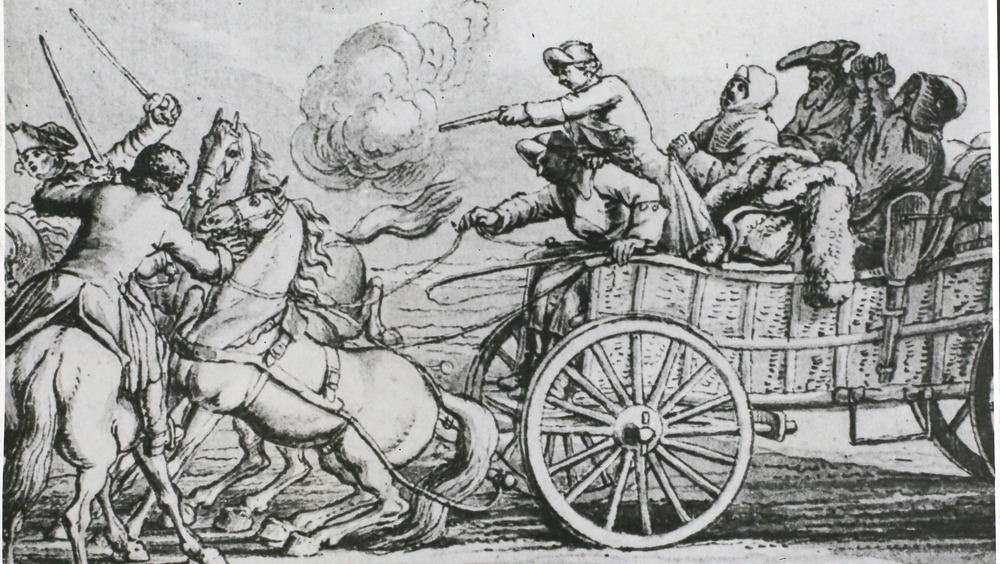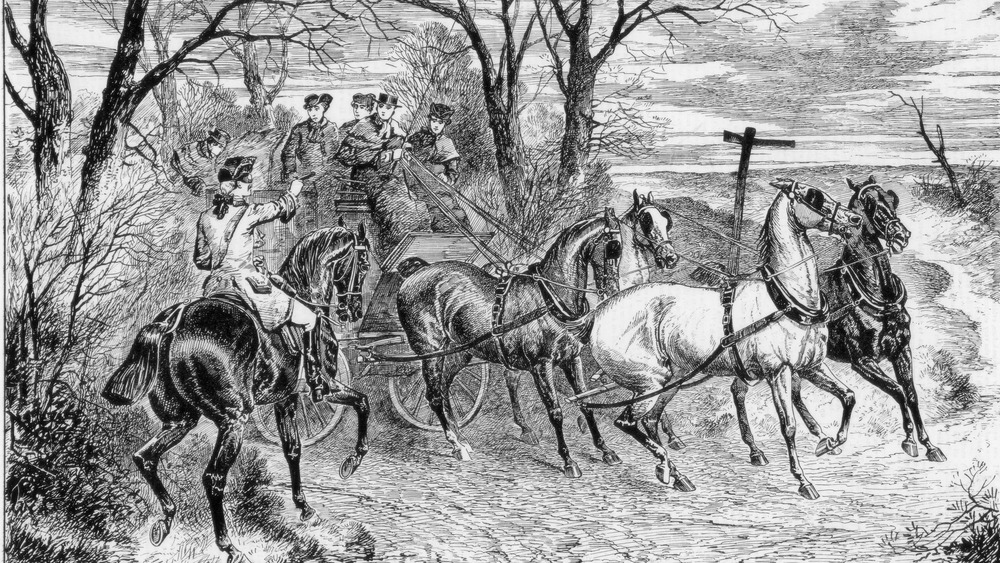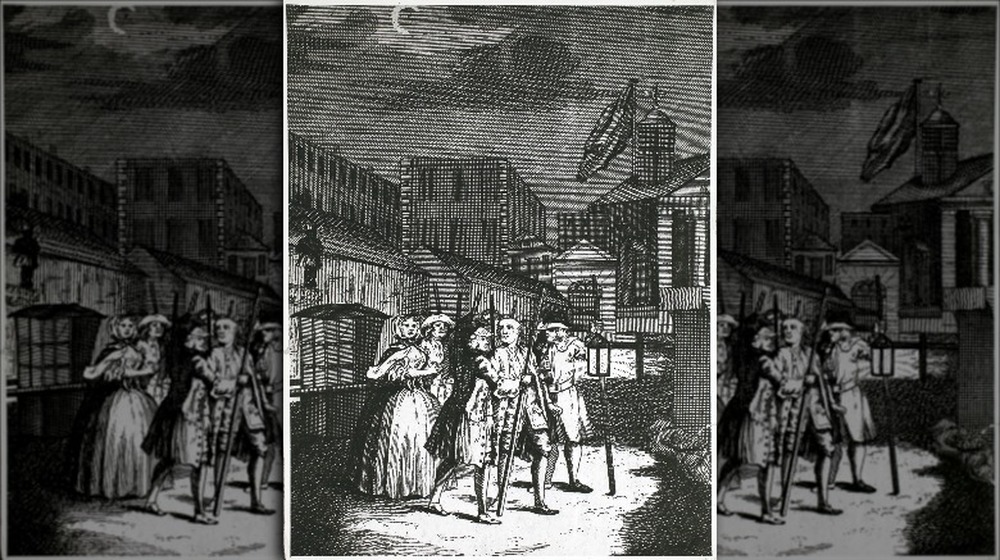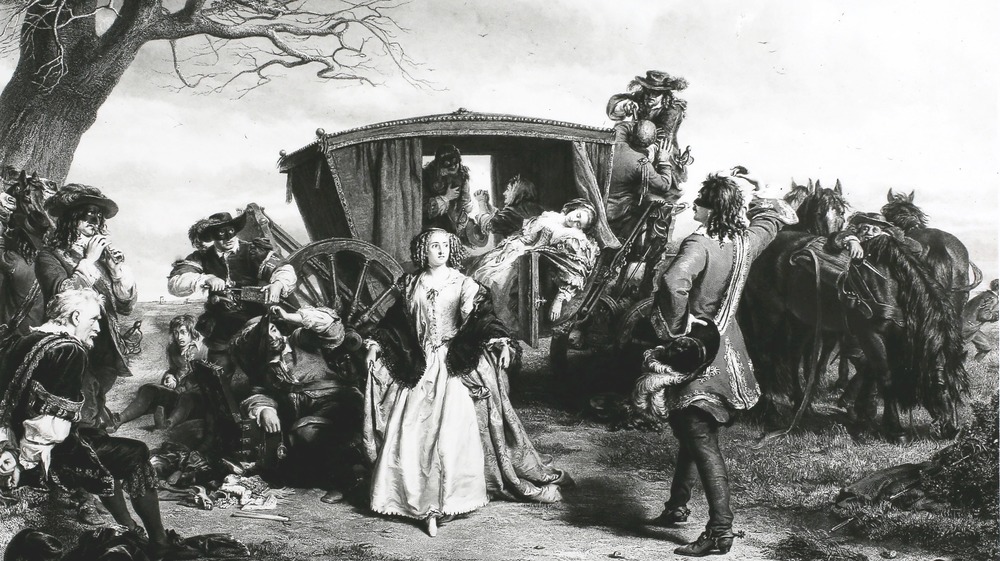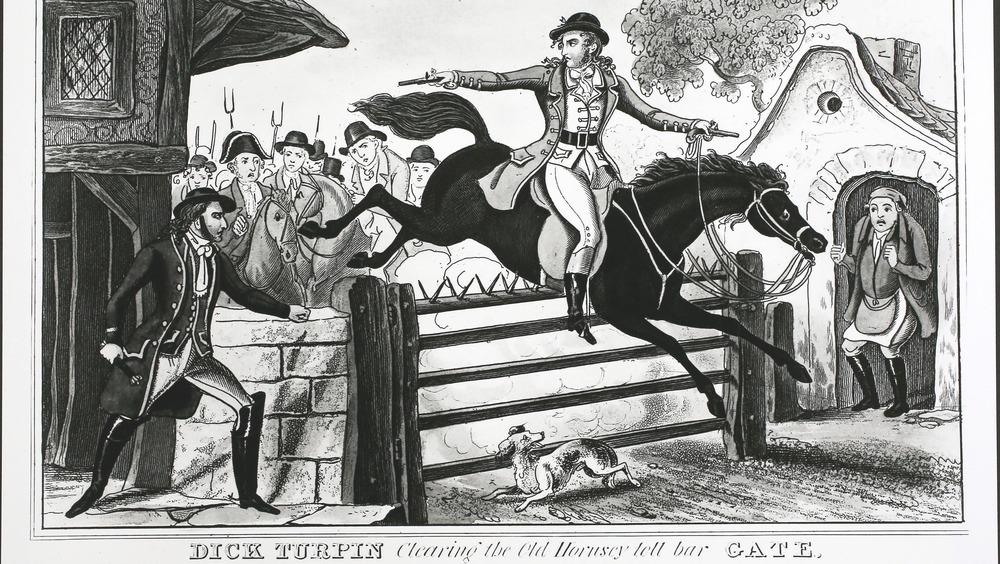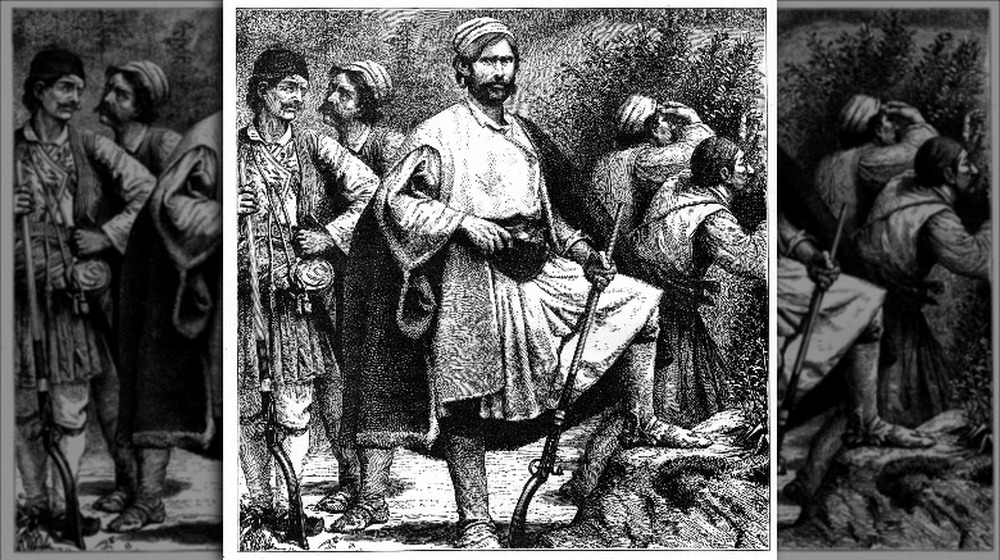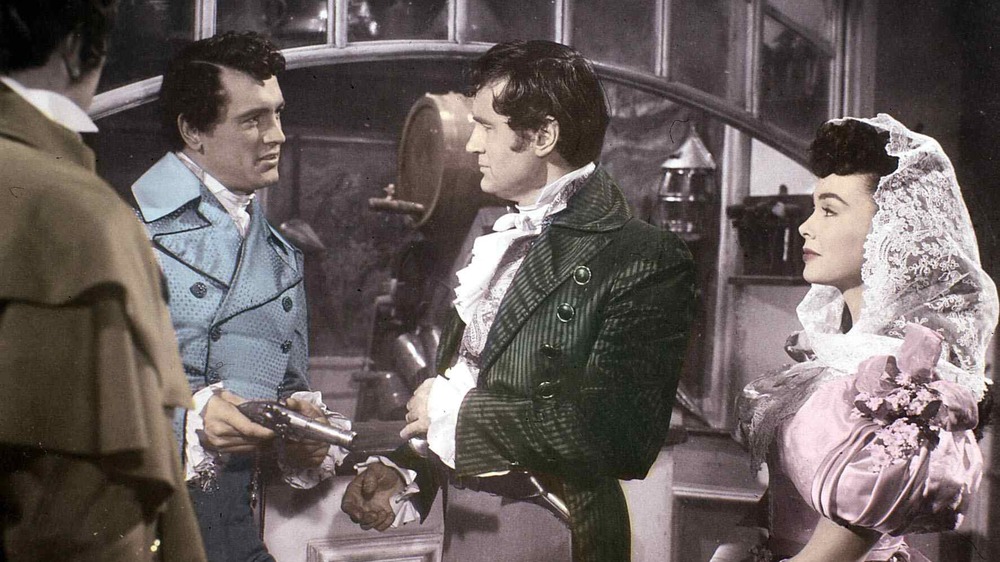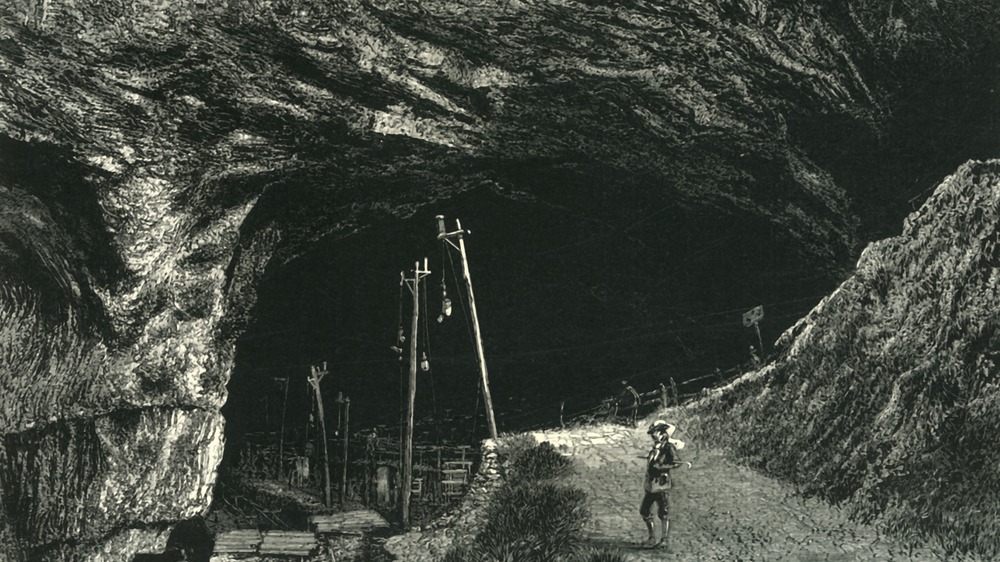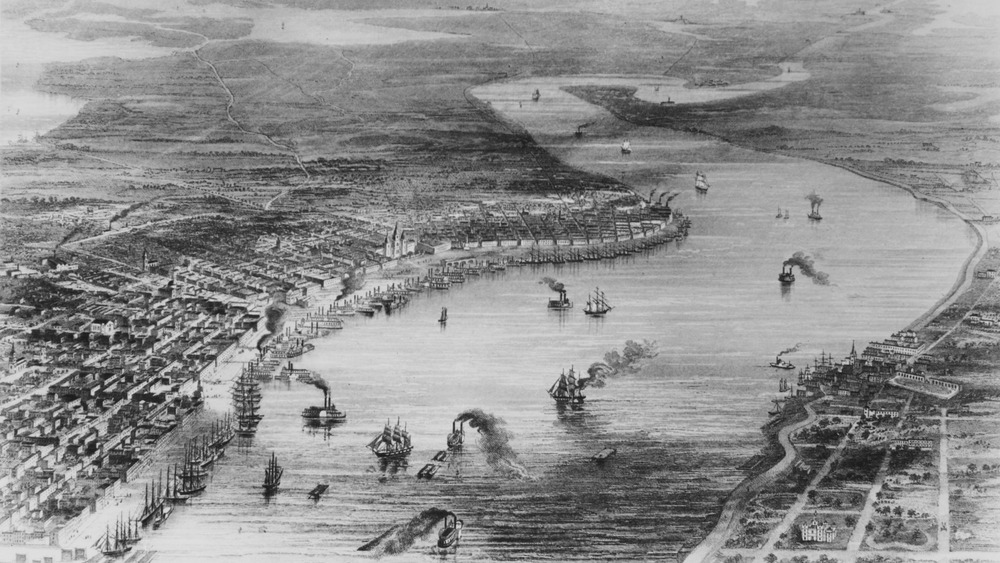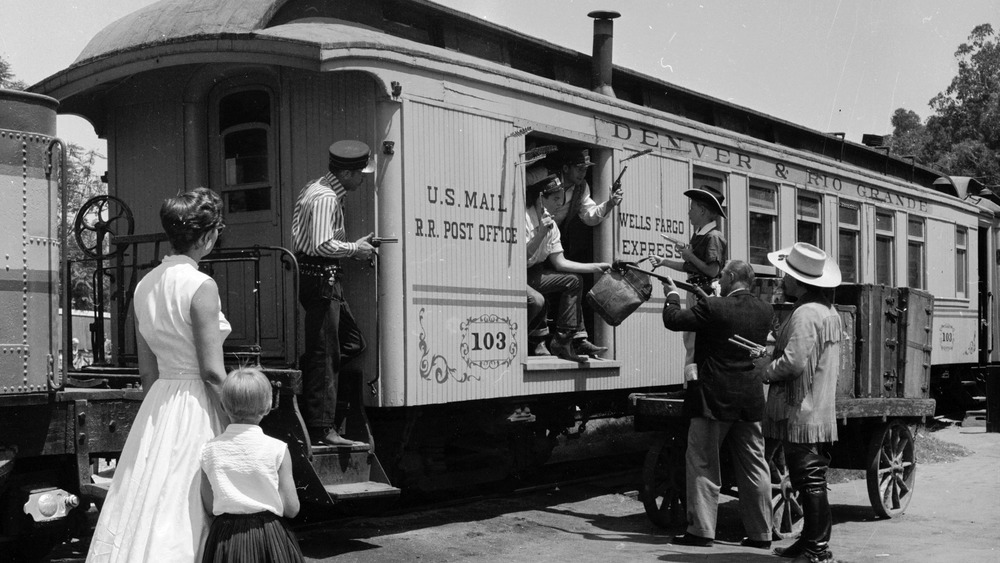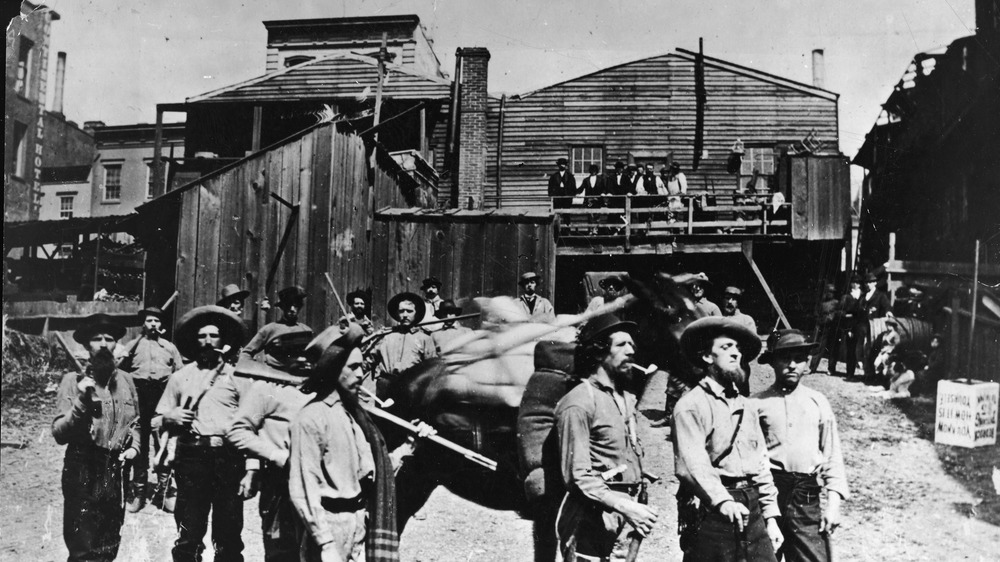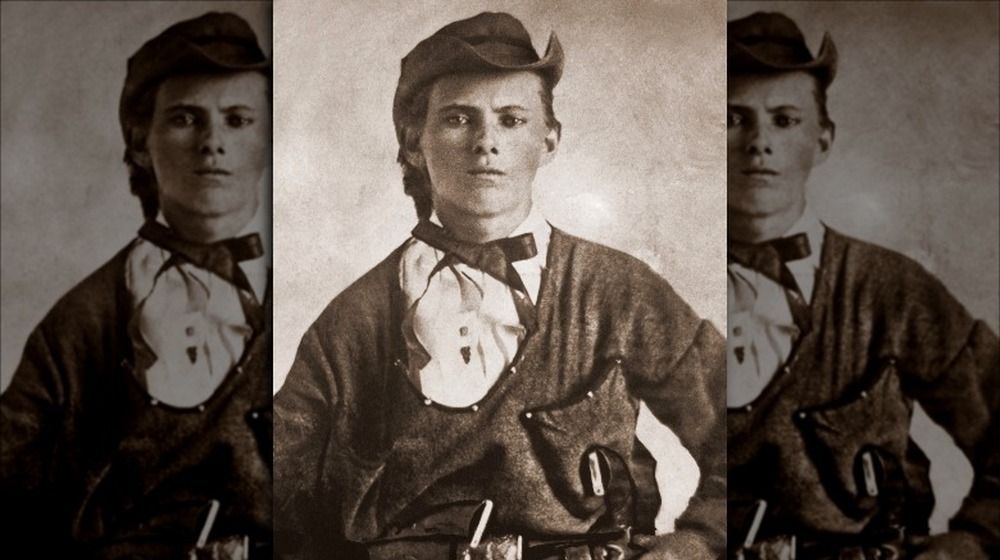The Most Notorious Highwaymen In History
When it appears the world is growing madder by the day, at heart, don't most of us get the urge to be an outlaw, to split from the world and create a new existence for ourselves? Isn't the romantic idea of cutting off upping sticks and hitting the road, looking for adventure quite seductive? The idea of historical freedoms that no longer exist has always been highly alluring, but in reality many of the open roads of the past were shockingly dangerous, with high numbers of outlaws and highwaymen prepared to use violence to keep themselves afloat outside of normal society.
The armed robber of the roads, the highwayman historically struck unsuspecting travelers, stripped them of their most valuable possessions, and then disappeared into the night — a romantic image itself. But the reality of many real-world highwaymen was a far cry from the stereotype of the masked Robin Hood-style figure from popular culture. England especially was known from the 14th century onwards for its high numbers of highway robbers, according to Outlaws and Highwaymen, which claims that the British writer Thomas More felt in the 16th century that "this was evidence of serious economic and social problems." And though many normal people saw highwaymen as brave and admirable figures, the rich surrounded themselves with bodyguards and hired goons, making the threat of violence in everyday life even higher.
Here is a rundown of some of the most notable — and notorious — highwaymen from European and American history.
The gentleman highwayman Henry Simms
One of the most revealing cases of the multifaceted nature of the historical highwayman is the story of the British criminal Henry Simms, who was hanged for his crimes in 1747. According to Ex-Classics, Simms was a Londoner who began his career as a thief while still a young boy. Orphaned, he was taken into the care of his grandmother, who planned for Simms to become a priest but soon became aware of Simms' deviousness when he was found stealing from the cash register of a store they were both visiting, and, later, when the young Simms decided to rob his own grandmother under the influence of "the vilest of company" — new underworld friends who then went on to rob Simms himself of his takings.
As Simms took to a career of highway crime, stripping travelers of their possessions on the dangerous roads around London, he ran the risk of "transportation" — the deportation of criminals to Australia, where they could be sold into servitude. And this indeed befell the highwayman, who had to escape from Australia and work his way back to England as a sailor. Once back in England, he was eventually recognized as the rider of a stolen horse, was captured, and executed.
Despite the apparent remorselessness of Simms' kleptomania, as he became a known thief he came to earn the nickname "Gentleman Harry," according to British Executions, the result of his seemingly upper-class comportment.
William Page, a bandit with a gambling addiction
Henry Simms was noted as spending the money he stole "in extravagance," according to British Executions, which was seemingly typical of many the highwaymen that prowled England in the 18th century — a more prosaic reality when compared to the "steal-from-the-rich-give-to-the-poor" myths that were perpetuated about such figures at the time.
Another highwayman with a compulsive side was Simms' fellow Londoner William Page. Known as "The Vanishing Highwayman," Page was born into abject poverty, according to Look & Learn, and spent his early years living with his family on a pitched tent in on the banks of the River Thames. Having seen the opulence of the lives of the upper classes for whom Page had worked in his early years, at the age of 16 he reportedly made the decision to be a highwayman, robbing the stage coaches of the wealthy and investing the money from his first three takes into a pair of pistols and an impressively speedy horse, which subsequently earned him his nickname. However, according to the historian Nictor Norton, Page was a compulsive gambler, and he lost the money he stole from "fashionable people including the Bishop of Bath and Wells" in betting houses.
Page was captured a total of three times, with the first two of his arrests leading to his being set free on the grounds of mistrial. However, on the third attempt the accusations stuck, and he was hanged for his crimes in 1758.
Thomas Boulter, the Flying Highwayman
Another trait of the archetypal highwayman was an affinity for the "ladies" — even those they were in the process of robbing — with many of the historical reports of highwaymen interpreting the behavior of such men to their female targets as akin to a form of rogueish gallantry.
Thomas Boulter was a highwayman in Wiltshire, England, during the 18th century, according to Wiltshire Online Parish Clerks, who gained a reputation for the ferocious speed of his horse, Black Bess. As such, he was nicknamed "the Flying Highwayman," but his reputation for speed was matched by his ego. The dandyish Boulter would make an effort to impress the women of the coaches he robbed with gallant displays, returning objects with sentimental value and dressing flamboyantly.
Boulter was so prolific a thief that "before long he was being blamed not only for the crimes he did commit, but for everything and anything of a criminal nature in five counties," per Wiltshire Online Parish Clerks. He was reportedly forced into the army upon his arrest, but Boulter seems to have had a rebellious streak in him, as have all of the highwaymen discussed so far. He deserted in a week and returned to a life on crime on the road. But he was once again captured, and, with desertion added to his list of charges, he was hanged to death in 1778, per the Gazette & Herald.
Katherine Ferrers, a mold-breaking highwaywoman
One English outlaw is an outlier in more ways than one — Katherine Ferrers. Prefiguring Henry Simms, William Page, and Thomas Boulter by some 100 years, Ferrers was notable not only for being a woman but also a member of the super-wealthy English aristocracy — Lady Katherine Ferrers was her title by day. But her deeds by night would garner her another name.
According to the website of The Chilterns, the area of England that Ferrers was known to haunt, Ferrers turned to crime after the death of her mother — her father had already died when she was just a baby — becoming the accomplice of a local farmer who moonlighted as a highwayman. When her partner was captured and hanged, Ferrers continued to pursue her nocturnal activities — though it can't be said that she needed the money.
Instead, Ferrers' career as a highwaywoman was driven by pleasure and compulsion, and she is noted as having been especially violent, mercilessly shooting many of her victims dead on the spot. Her end, too, is unusual for a highway robber — she was killed in a gunfight in 1660, aged 26, known to posterity as "The Wicked Lady."
Dick Turpin, posthumous celebrity
The best-known highwayman is undoubtedly Dick Turpin, who, on his horse Black Bess (Thomas Boulter reportedly named his own horse in honor of Turpin's famous steed), elicited bounty from the wealthy nobles of 18th century England in a crowd-pleasingly swashbuckling manner. But according to Stand and Deliver, Turpin's reputation is only half of the story — "it was only at the very end of his life, while waiting to be hanged at York racecourse, that Turpin exhibited any of the swaggering nonchalance, heroism, or derring-do usually attributed to him. Prior to that, both his existence and his criminal ventures had been squalid."
The son of a farmer and innkeeper, Turpin began his criminal career as part of the Essex Gang, named after the county Turpin and his accomplices terrorized, after being caught rustling cattle. The gang, who according to Britannica specialized in deer stealing and smuggling, broke up in 1735, and Turpin headed north to set up as a bogus horse dealer.
He was arrested and hanged for his crimes in 1739 but had an afterlife as a folk hero, thanks in part to "Rookwood," an 1834 poem by William Harrison Ainsworth valorizing the outlaw. Such depictions have romanticized Turpin beyond compare, to the point that his use of brutal violence — and, indeed, murder — has been all but erased from popular memory.
Louis Dominique Garthausen, the Bandit of Paris
Though the image of historical highwaymen is typically associated with the British Isles, there were also plenty of notable outlaws in other European countries that became popular figures. The most famous outside of Britain was perhaps Louis Dominique Garthausen, also known as "Cartouche."
Like his 18th century British counterparts, Cartouche is said to have embraced the life of a highway outlaw as if it were a vocation, an identity that he was drawn to irresistibly. History blogger Geri Walton explains how Cartouche began his life of crime at an early age, devising a system to steal pots of honey while still at Jesuit school. Later, Cartouche joined a gang of thieves, robbing travelers of their belongings with the rather stereotypically Parisian motive of giving presents to his lover. Cartouche's exploits were legendary and eventually earned him the name, "The Bandit of Paris."
When Cartouche was finally arrested for his crimes, the French authorities decided to have him executed by the most horrific method — he was "broken on the wheel," a medieval execution method in which the condemned prisoner is publicly lashed to a large wheel and bludgeoned to death. According to Walton, the body fo Cartouche was left out in the open for days, with members of the public paying to see it.
An Irish highwayman in America
For many Europeans, the New World has historically symbolized fresh starts and renewed opportunity — and this is also true for the continent's thieves and outlaws.
One such figure who left Europe to take up a life of crime in America was Michael Martin. According to the New England Historical Society, Martin had made a name for himself in the British Isles as a gentleman highwayman, with the fanciful epithet "Captain Lightfoot," a nickname given to him by his partner in crime, "Captain Thunderfoot" Doherty. The two conducted themselves according to their own code of ethics — preventing them from using extreme violence or from being discourteous to those they were robbing — but as their exploits saw them become wanted criminals they decided to make a break with their usual territory. The partnership split, Martin emigrated to Salem, Mass., and though he originally tried to use a $400 inheritance to set himself up as a brewer and live a law-abiding life, he was eventually drawn back to the trappings of a highwayman, operating all along the East Coast.
Martin was eventually apprehended after falling from his horse following an altercation with an angry mob, who knew him as a highwayman. Per the NEHS, Martin was the first person to be hanged for highway robbery in the United States, and it is believed that his story lived on thanks to the confessions he gave to a writer in the days before his death.
David Lewis, the Robin Hood of Pennsylvania
David Lewis is another of those figures that local legend seems destined to paint as a hero, thanks to his uncanny ability to evade capture and his widely reported generosity. Known as the "Robin Hood of Pennsylvania," Lewis bears a closer resemblance to the inhabitant of Sherwood Forest than most other highwaymen in that he also had a famous hideout. In Lewis' case, it was a series of underground passages known as "Lewis Cave," where Lewis and his gang would hide between raids on the wealthy inhabitants of nearby Doubling Gap.
But Lewis' daring escapes from prison are perhaps more famous than his hold-ups. According to the Gardner Digital Library, his first escape was from a military prison, where he was being kept as a deserter. Having escaped imprisonment, Lewis followed the creek into the wilderness where he proceeded to live outside the law, operating as a counterfeiter and highway robber. Lewis was captured repeatedly but was never sentenced to death. Rather, it was the result of an injury turning gangrenous that saw Lewis die behind bars in 1820, at the age of 30.
Samuel Mason, a heartless highwayman
As anyone who has read a Cormac McCarthy western knows, the highways of America in the 18th and 19th centuries were brutally violent, irreconcilable with the lives of European highwaymen as shown in popular romances. In fact, in the dark days of the American frontier, bands of traveling thieves and outlaws counted among them some of the most heartless and inhumane characters in American history.
One of the most prominent of these was Samuel Mason, a leader of a gang of river pirates and highwaymen that operated along the Mississippi and Ohio rivers. And Mason, like his men, was merciless, killing pitilessly those he robbed, according to Legends of America. Mason's criminal associates included some of the most notorious in American history, including the Harpe Brothers — believed today to be some of America's first serial killers, motivated by the love of the kill rather than money.
According to WKMS, Mason was arrested when authorities found in his possession $7,000 in counterfeit bills and 20 human scalps, which confirmed that he was a murderous robber. Mason somehow escaped confinement, but the inhumanity of Mason's own gang is evidenced by the fact that two days after his escape, two of his own gang returned with Mason's head, attempting to claim a reward. WKMS claims that these two outlaws were themselves then hanged.
Joseph Hare, notorious mail robber
As American infrastructure improved, it was no longer just private citizens who became the targets of outlaw criminals. The mail service became a lucrative target for highwaymen in the early decades of the 19th century, with some of those arrested for the crime of stealing the mail gaining quite a degree of celebrity for their actions.
As described by Rare Americana, one of these mail robbers was Joseph Hare, a literary career criminal whose "gang reputedly murdered over a hundred people and robbed up to 100,000," while Hare himself was not averse to self-mythology. Having been arrested and sentenced to death, Hare wrote a confession which was later published. It was titled, "Confession of one of the mail robbers, Joseph Hare, alias Joseph Thompson Hare, and according to his own narrative The Greatest Robber that Ever Lived; Who, together with John Alexander, was executed at Baltimore, Sept. 10, 1818. Detailing his robberies in the states of Kentucky, Virginia, Maryland, Tennessee, Ohio, Louisiana, Pennsylvania..."
Henry Plummer and a fall from grace
Most highwaymen seem to choose a life of crime at an early age, seemingly reconciling within themselves their desire to live outside of the law and to operate according to their own moral compass — however twisted it may seem to those who abide by society's rules.
But Henry Plummer's story works another way — a complete fall from grace of a man who couldn't control his passions. Born in Addison, Maine, in 1832, Plummer traveled to California during the Gold Rush, according to Legends of America, where he became sheriff of Nevada City at the age of just 24. However, things quickly went sour for Plummer when he shot dead the jealous husband of his lover and was taken to San Quentin after being found guilty of second-degree murder.
Plummer was released from prison on health grounds and thanks to "pressure on the Governor by the petition" of the townsfolk who elected him, according to Legends of America, but Plummer failed to return to the law. Increasingly dissolute after his prison spell, Plummer joined a band of highwaymen to pay for his new vices and murdered a number of men along the way — including the sheriff of a neighboring town.
The former lawman was hanged by vigilantes in 1864, though the exact nature of his crimes has since been contested, according to History Net.
Jesse James, an industrial highwayman
No name on this list is bigger than that of Jesse James, the notorious outlaw who, it is believed, was shot dead by a former ally, Robert Ford, in 1882. The most famous image of James is replicated in the opening scenes of the star-studded 2007 movie, The Assassination of Jesse James by the Coward Robert Ford, which depicts the Jesse James gang in the process of robbing a train as it travels through Blue Cut, Mo. Reviewing the movie upon its release, the critic Roger Ebert made an important point about the Western genre that could be said to explain the prominence of outlaw figures in the American Old West — "the land is so empty, it creates a vacuum demanding men to become legends."
James is undoubtedly a legend, even today, with the ingenious methods he and his gang devised to allow trains to be another target of ambush along with stage coaches and other typical highwayman fare that made him one of the most memorable criminal figures of the increasingly industrialized 19th century America.
According to PBS, James wrote of the pride he had in his criminal activities, a common characteristic of highwaymen — "we are bold robbers. I am proud of the name, for Alexander the Great was a bold robber, and Julius Caesar, and Napoleon Bonaparte."
